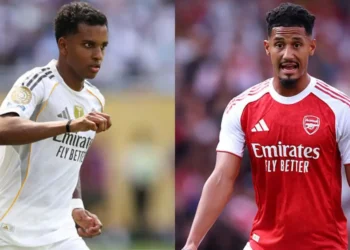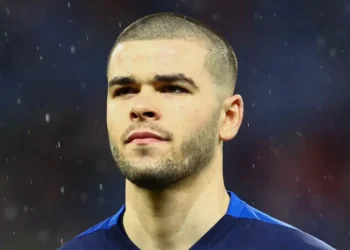Cristiano Ronaldo, one of football’s most iconic figures, is once again at the center of global headlines as reports suggest Al-Nassr is readying what is being called the “Contract of the Century.” The Saudi Arabian club is reportedly offering the Portuguese superstar a massive extension that could redefine the economics of football contracts. According to the Spanish outlet Marca, the proposed 12-month deal would see Ronaldo earn a staggering £155 million per year—an eye-watering figure that breaks down to approximately £2.98 million per week or £425,000 per day.
This monumental offer, however, is not the only estimation circulating. Another source has suggested that Ronaldo’s annual salary could be closer to €200 million. That would equate to about €3.8 million weekly or an astonishing €550,000 every day, making it potentially the most lucrative single-year player contract in sports history.
This isn’t just about money. The deal reportedly includes a proposal that could deepen Ronaldo’s involvement with the club long term. Sources claim Al-Nassr is also willing to offer him a 5% ownership stake in the club, a rare and powerful incentive in modern football. This strategic move would tether Ronaldo’s legacy to Al-Nassr well beyond his playing days and could see him taking on a more substantial role in shaping the club’s future, both on and off the pitch.
The proposed extension would keep Ronaldo at Al-Nassr until 2026, providing him with a stable competitive environment as he gears up for what could be his final major international tournament—the 2026 FIFA World Cup in the United States, Mexico, and Canada. This continuity could be critical for maintaining his physical condition and elite form heading into the tournament, where Portugal will once again look to their talisman for leadership and inspiration.
Ronaldo originally joined Al-Nassr in late 2022, becoming the first global superstar to make the leap to Saudi Arabian football in the modern era. At the time, his move was seen as both groundbreaking and controversial, but it has since triggered a wave of high-profile transfers to the Saudi Pro League. The likes of Karim Benzema, Neymar, and N’Golo Kanté have followed suit, drawn by competitive salaries and the opportunity to pioneer a new era in Middle Eastern football.
Under Ronaldo’s influence, Al-Nassr has transformed its global image. Once a relatively obscure club to many outside the Middle East, it now enjoys international recognition, millions of new social media followers, and a surge in merchandise sales. Ronaldo’s presence has had a ripple effect, boosting attendance, viewership, and the profile of the entire Saudi Pro League. His commercial impact alone arguably justifies the proposed financial terms of the new contract.
The 39-year-old forward has shown few signs of slowing down, continuing to score regularly and maintain peak physical condition, defying the traditional expectations of aging athletes. By offering this “Contract of the Century,” Al-Nassr appears not only to reward his past performances but to bet on his continued excellence—and his magnetic draw—as the face of a growing football enterprise.
From a broader perspective, this contract also signifies the shifting power dynamics in global football. Traditionally dominated by European giants, the sport is witnessing a decentralization of influence. The financial power of clubs outside Europe, particularly in Saudi Arabia, is allowing them to attract elite talent and compete on a different stage. By potentially securing Ronaldo for several more years and involving him in ownership, Al-Nassr is making a statement about its long-term ambitions and the sustainability of its growth strategy.
Of course, the contract also raises questions about the balance between sporting competition and financial incentive. While Ronaldo remains a world-class athlete, critics argue that such astronomical figures might distort the sport’s market and create unrealistic benchmarks for clubs and players alike. Nonetheless, for Al-Nassr and Saudi Arabia, the deal aligns with broader initiatives to promote the nation as a hub for global sports and entertainment.
If finalized, this contract could be a turning point not just for Ronaldo, but for football at large. It reflects the growing intersection of sport, commerce, and geopolitics, with players like Ronaldo at the epicenter. While the numbers involved may seem surreal, they also capture the immense value he brings—not only in goals, but in global reach, brand influence, and cultural significance.
In the twilight of his playing career, Ronaldo is still breaking boundaries and setting records. The “Contract of the Century,” if signed, will be yet another testament to his enduring appeal and the unprecedented pathways he continues to chart in world football.











